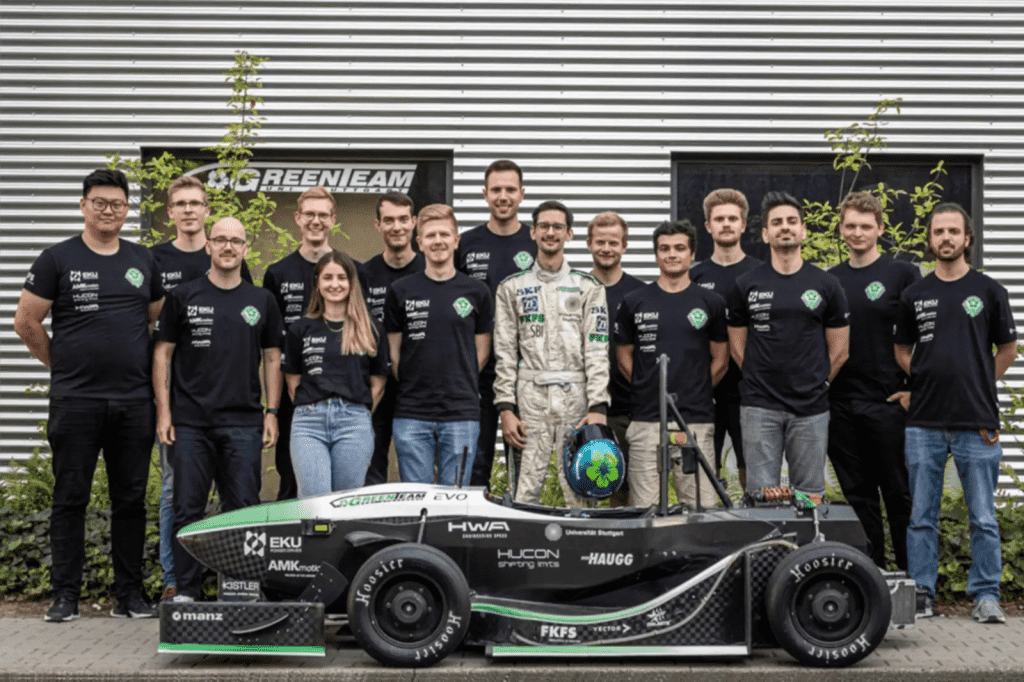The fastest-accelerating EV has been created. Not by Mercedes, BMW, or Ferrari but by a group of 20 students from the University of Stuttgart in Germany.
The record-breaking self-built prototype documented by the Guinness Book of world records has achieved the speed of 0-62 mph in just 1.461sec, beating the previous record of 1.513sec, which was set by a team in Switzerland in 2016.
This is faster than most A liners in the market, 0.5sec faster than the Pininfarina Battista, 0.6sec faster than the Ariel Hypercar, and 0.9sec faster than the Tesla Model S Plaid. The crowning achievement, however, is that it is a full second faster than the 2.4sec achieved by the Bugatti Chiron.

It is also pretty lightweight, weighing in at less than 145kg; the Greenteam racer broke the record on a track at Bosch’s site in Renningen. It uses dual electric motors to generate 247bhp. In addition to the dual motors, it also has a four-wheel drive and a bespoke battery pack.
The University of Stuttgart has claimed that it produces around 1726bhp per tonne, with a peak acceleration of 2g. Mind you that 2g is equivalent to the force felt by astronauts re-entering the earth’s atmosphere.
The team of 20 had taken a whole year to make their record-breaking vehicle. The students that formed part of the team studied different disciplines in the university and came together to achieve this monumental feat. They were supposed to run the tests last month but had to reschedule owing to a technical problem.

It’s not the first time the GreenTeam has had this record to their name. They first achieved a 0-62mph time of 2.681sec in 2012. Teams in the Netherlands and Switzerland later broke the record, most recently in 2016. However, this feat was not achieved without suffering setbacks, earlier this year, a car lost control at high speed and crashed into a tire stack that was in place as a track barrier.
On breaking the record, team chairman Pavel Povolni was “delighted” to bring the record back to Germany. “We suffered a bitter setback at the end of July,” said Povolni. “Fortunately, the driver was unharmed, but the vehicle suffered enormous damage.” Diogo Silva, the driver of the vehicle, said, “It was exhausting but a unique experience and it was definitely worth the hard work.”


